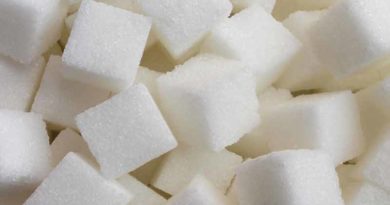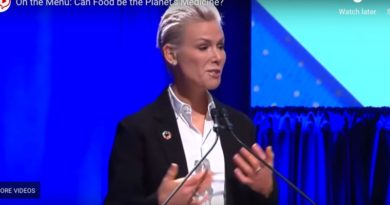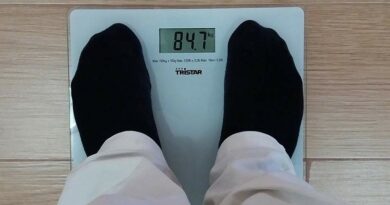Obesity & Surgery
The National Institute for Clinical Excellence (NICE) guidelines are that anyone with a BMI over 40 (or a BMI over 35 with co-morbidities) could be a consideration for bariatric surgery.
Bariatric surgery is the collective term for anything from gastric bands to stomach stapling or bypass operations. All of these types of surgery are, putting it bluntly, trying to shorten the distance between the mouth and the anus in one form or another! As a consultant said at an obesity conference I once attended – if you connect someone’s oesophagus to their rectum, they will lose weight (as well as all chance of nutrients being absorbed by the body).
Last year in the UK approximately 6,000 obesity operations took place. 2,724 of them were on the NHS – an increase of 40% over the previous year. The demand is constantly outstripping supply and more people are becoming ‘eligible’ for this surgery every year with little increase in capacity. One in 12 British adults now qualifies for this type of surgery.




Hi Zoe,
long before i discovered your website my doctor put me forward for a gastric band. I had a consultation with the surgeon’s under study last week, a young man who looked like he didn’t have a clue about obesity. He asked me what i ate on a day to day basis. I told him exactly…Some days i miss breakfast which i know is not right. When i do its scrambled eggs or cereal or porridge.
Lunch at work is either a sandwich, or soup or a salad and sometimes a yoghurt.
Dinner is meat and veg or salmon and veg or spaghetti bolognese.
i told him at the weekend once a week i share a takaway with my husband, and sometimes we have the odd cheescake when my father in law comes for tea. We hardly ever have chips i dont eat the potatoes and try not to have too much bread as i have a bit of a wheat intolerance. I am not rally eating much but i can put weight on easily and find it difficult to lose, and he looked at me and said so what do you snack on in between meals. I told him i didn’t as i was at work and being on a reception dealing with patients and telephone calls eating is impossible any way. He then said so what do you eat on a night after your tea. I told him i didn’t and he just looked at me saying so where do the calories come from to make you put weight on. I said i don’t know this is the problem i have. He said well you must have huge portions then, i told him i don’t. He just totally disbelieved me and made me feel it’s all my fault and like i was in denial or something. He said maybe i need to see a psychiatrist to work out my eating problems. Then he sent a dietician in to see me. I got the same reaction from her total disbelief. She asked me what methods i had tried to lose weight in the past. I told her all the usual weightwatchers, slimming world, cambridge diet. She asked had i ever lost weight and i told her yes when on cambrige diet 4 stones. Which i have put back on over the past 3 yrs. I also said I had lost weight on the Harcombe Diet. She said she had never heard of it what was it about so i told her. She said you want to stop all these faddy diets and eat healthy and food combining and not eating fats and carbs etc doesn’t work.
I told her i am eating healthy on the Harcombe diet and i get a lot of support from your website and feel that you understand weight problems and mostly you never blame the individual for their weight gain, i said you were an obesity researcher and knew what you were talking about. When i left my appointment i felt totally demoralised and like i was a liar. I felt i would have got more help and sympathy if i had gone in saying i eat everything in sight all day long.
They didn’t seem to like the fact that i was a normal happy person, they asked all kinds of questions about depression. Do i have to be a depressed person that eats uncontrolable to get help.
I have to lose 8lbs before my next appointment in a couple of months.
I just wonder what to do. I will be 50 at christmas and want to be fit and fifty not fat and fifty. My parents both started heart problems in their late 50s and my mother developed type 2 diabetes in her 70s. I don’t want to follow the same path.
Where am i going wrong. Should i eat more regular or eat more good food?
Is there any point having the band if i am not a big eater anyway?
On holiday for 2 weeks a year is the most i eat as it is all inclusive, or a special occasion i really struggle with my weight.
Any suggestions would be welcome.
Kind regards
Diane Lund
Oh Diane! Boy do I feel for you and thank you so much for sharing all of this. Your story will ‘talk’ to the two thirds of people in the Western World who are overweight and are told constantly – eat less and/or do more and yet we have known since at least 1917 that this doesn’t work. I’m working on a book at the moment to dismantle all this nonsense and to get a message out (to GP’s, public health bodies, dieticians, dieters – whoever needs this) that we have got the absolute fundamentals of dieting wrong and we have caused this obesity epidemic with our current advice.
Check out the Eatwell plate (the dieticians’ “bible”) and see how up to 85% of your intake can contain carbohydrate – which will wake up your insulin mechanism.
If The Harcombe Diet has worked for you – stick with this – lose masses more than 8lbs before your next appointment and tell them how you did it! The Harcombe Diet isn’t to be dismissed as food combining. Its fundamental principle is to eat real food and only real food and none of the processed junk that your dietician would happily let you eat. It is about understanding and overcoming the three conditions that cause food cravings, so that you can stick to the plan and lose weight without hunger or cravings. It is about using what we know about how the body stores and uses fat to eat carbs in a planned way to ensure that the body uses them for energy and doesn’t use the insulin that they cause to be released to store fat. Don’t let a dietician who is obsessed with calories and nothing else dismiss a book which she hasn’t even read.
I would recommend staying on Phase 1 for as long as you can bear to – this will really help sort out any conditions going on and give the best weight loss. Keep up the great ‘no snacks’ policy and only eat real food. If anyone fails on Phase 1 (hasn’t happened yet), I would recommend ‘Banting’. This was the 1860’s version of Atkins – meat, fish, eggs, (some) dairy, green veg & salad and no other carbs.
If you are trying to lose weight to have surgery, please seriously consider this. See this blog on weight loss surgery . You may only be able to eat low calorie/high carb food after a stomach operation – meat and real foods become almost impossible to digest. Add to this the serious statistics in that blog. You make a good point that it won’t help much if you don’t eat much anyway.
I really wish you all the best with The Harcombe Diet. Join us on http://www.facebook.com/theharcombediet and look out for Melissa and Helena especially. Melissa is 3-4 stone down and a couple more to go. Helena is having the same problems with her GP and is trying to educate him! They are inspirational women.
Very best wishes – Zoe
Diane – me again – I’ve been meaning to write up a blog on the Minnesota starvation experiment (i.e. calorie restricted diet). You’ve inspired me to do it today. See what your doc and dietician make of it!
Best wishes – Zoe